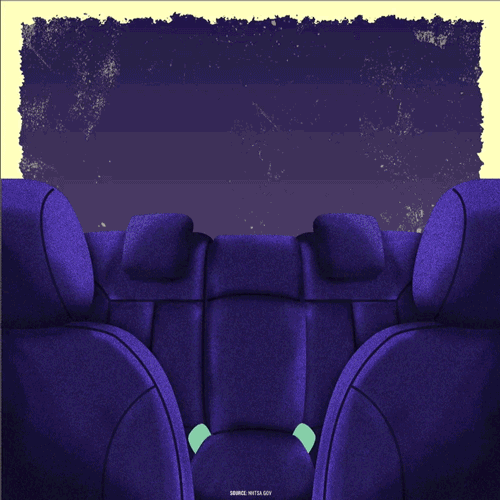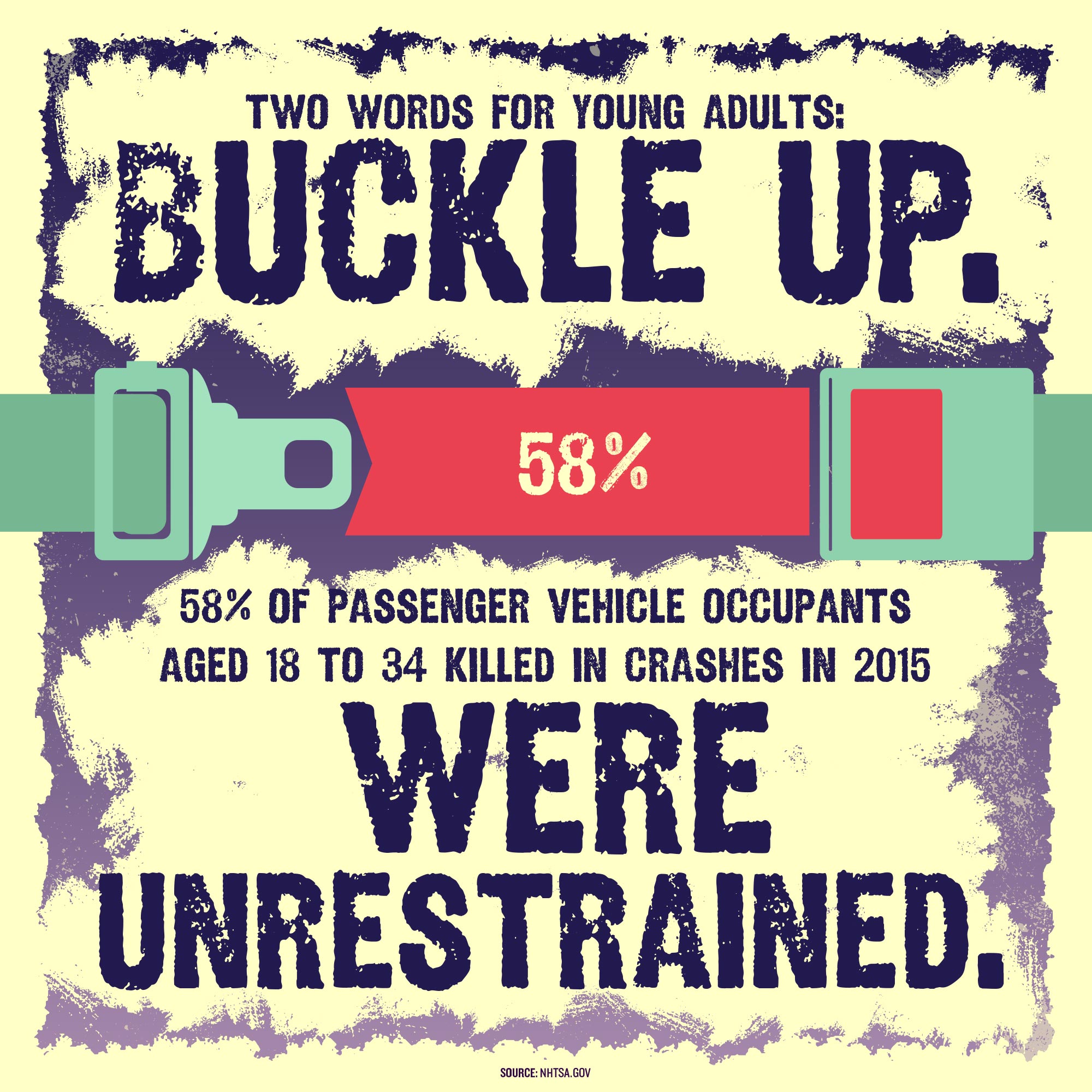Click It Or Ticket: Make Seat Belt Use A Daily Habit
In 2016, more than 32 million people failed to buckle up while in their vehicles—that’s nearly 10 percent of drivers and passengers. Decades ago, we learned about the life-saving importance of the seat belt, and since that time, States across the nation have required people to buckle up when operating a vehicle. And for good reason: Just between 2012 to 2016, seat belts saved nearly 67,000 lives. But there’s still so much work to do. Tragically, if all passenger vehicle occupants 5 and older involved in fatal crashes had worn their seat belts, an additional 2,456 lives could have been saved in 2016 alone.
From May 21 to June 3, local law enforcement agencies will join the National Highway Traffic Safety Administration (NHTSA) and for the 2018 Click It or Ticket enforcement mobilization. They will be out in full force, cracking down on seat belt violations and issuing citations to anyone caught traveling without a buckled seat belt or transporting unrestrained children.
Please Buckle-Up For Memorial Day Holiday Weekend
May is a critical period for law enforcement agencies to target unbuckled drivers. With the Memorial Day holiday weekend marking the official start to summer, there will surely be thousands more families traveling the roads to their vacation destination. This is one of the most effective times to remind drivers why seat belt laws matter—they help save lives. This is not a campaign to write tickets or train law enforcement. This is a campaign to help keep people safe and alive. Law enforcement officers see the casualties of not wearing a seat belt, and they do not wish that devastation on anyone.
Thus, they ask drivers across the country to please make buckling up an automatic habit, just like brushing your teeth or turning off the light switch. Whether you ride in the front seat or the back, and no matter which car seat or booster seat your child may use, everyone’s seat belt should be buckled every trip. According to NHTSA’s 2016 research, 10,428 people were killed by neglecting this one simple task. The action is so quick and so basic—and it can save your life.
Dangers of Unbuckled Driving
In addition to increased patrols and zero-tolerance enforcement, staff members in ACOG’s Transportation & Planning Services Division and 9-1-1 and Public Safety Division, want to share with you the facts about the dangers of unbuckled driving:
- YOUTH: Young adults in particular seem to think they are invincible in vehicles. Unfortunately, they are dying at a disproportionate rate because they are not wearing their seat belts.
- MALES: Almost twice as many men are dying in vehicle crashes compared to women, and they are wearing their seat belts less often.
- PICKUP TRUCK DRIVERS AND PASSENGERS: Many pickup truck occupants think that they don’t need to wear their seat belts because they believe their large vehicles will protect them in a crash. However, the numbers from NHTSA tell the truth: 60 percent of pickup truck occupants who were killed in crashes were not buckled up. That’s compared to 42 percent of passenger car occupants who were unbuckled when they were killed in crashes.
More People Killed in Nighttime Crashes Than Ever Before
Nighttime also poses a particularly dangerous threat to vehicle occupants, which is why an important part of our safety message to motorists includes the words “day and night.” In 2015, about 57 percent of passenger vehicle occupants who were killed during the nighttime hours of 6 p.m. to 5:59 a.m. were not wearing their seat belts. More people are being killed in nighttime crashes than ever before, and we are going to be targeting nighttime seat belt violators as a result.
Each year, too many people die as a result of refusing to buckle their seat belts. The numbers must change. The behavior is too simple. Just a click of the seat belt. Do not just buckle up to avoid a ticket—our friends’ and families’ lives in Central Oklahoma are more important than that. But if you are caught driving while unbuckled, you will get a ticket—no excuses, no warnings. Wearing your seat belt is required by law. Day and night, front seat and back, Click It or Ticket.
You can find out more about the Click It or Ticket mobilization at www.nhtsa.gov/ciot.

Staff Contacts
Jennifer Sebesta
Program Coordinator
Transportation and Planning Services
(405) 234-2264
Story Map
Don’t miss ACOG’s recent story map featuring high crash areas on Oklahoma City streets. Click here to see it now.

